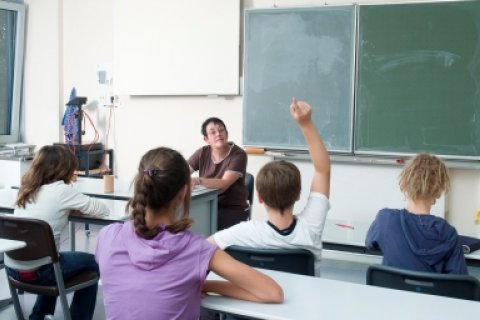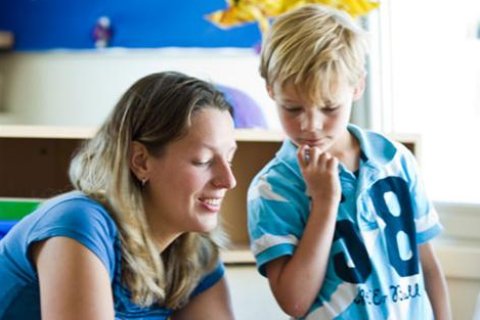Introducing our societal partners: Jelle Kaldewaij
You say youth, I say education
In order to know what’s needed and what’s not in children's health, social well being and education, Dynamics of Youth researchers need connections with The Real World. In a series of interviews we'll introduce our Societal Partners to you. This time: Jelle Kaldewaij, director of the NRO (Netherlands Initiative for Education Research), member of our Societal Advisory Board. What can he offer Dynamics of Youth, and in what kind of child research is he most interested?
Jelle Kaldewaij

Jelle Kaldewaij, who has been immersed in all things educational and lingual since his first job as a Dutch language teacher, foresees that Dynamics of Youth could tie valuable knots between educational and youth research. Per year, his organisation NRO has 15 million euro’s worth of research funding to give out. “So we must think carefully about where it goes. And we also consider for what kind of projects we may be able to coax other ministries into financial cooperation.”
Influence welcome
Kaldewaij welcomes interdisciplinary influence: “For my field, education, it’s beneficial to be influenced by other types of studies. Studies about youth are, for the most part, the field of pedagogues and psychologists, and are largely based on the individual child. Education research on the other hand is usually about groups, about learning curves and processes. I think both fields could benefit greatly from each other.”
An already existing direct link between DoY and Kaldewaij’s NRO is the Dutch national research agenda. One of the ‘routes’ (a selection of interlinked cluster questions surrounding a complex theme) is 'Child and adolescent development, upbringing and education'. DoY-people and other research groups are already involved and could gain a lot here, Kaldewaij thinks.
Personalized education

What kind of DoY-projects touching on education would NRO be looking out for? “Take personalised education. Everybody is talking about it: each individual child has its own qualities and its own perspective. In daily life though, you have to offer teaching programs for larger groups. When it comes to research questions about these matters I think we can help each other.”
Second example: children from disadvantaged environments often get lower school advice than you might expect based on their Cito (Dutch national examination-system) outcomes. “Apparently there’s bias among teachers, but it might also have something to do with how schools are regarded by families in less privileged environments. Can we help these families to stimulate their children more? And might some tool be developed that could diminish the influence of bias among teachers?”
Might some tool be developed that could diminish the influence of bias among teachers?
The give-and-gain
What can Dynamics of Youth gain from its partnership with NRO? “We can introduce DoY-researchers in the networks needed in education research, and help with research plans and grants. Vice versa, DoY means broadening our network, access to experts, and help when it comes to developing educational research programs. And, of no small importance: through DoY we get an overview of what’s hot and happening in youth research!”
Dynamics of Youth
As one of Utrecht University's four strategic themes, Dynamics of Youth combines excellent child research from all seven faculties. Within Dynamics of Youth, researchers from different disciplines integrate their expertise to answer crucial questions for future generations. How can we help our children develop into balanced individuals, that are able to function successfully in a rapidly changing environment?

